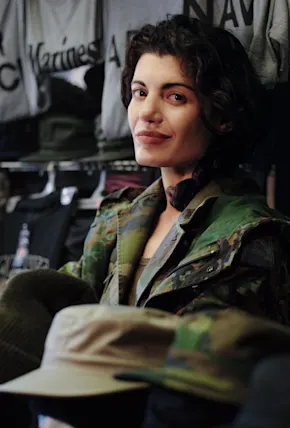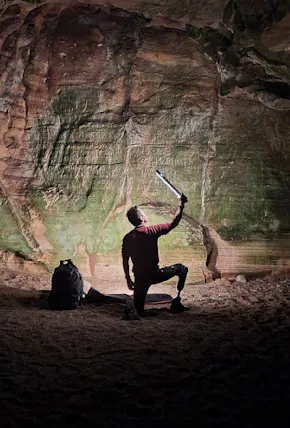Being a top-tier, big wall climber seems like a weird rhythm of sending these unimaginable routes, then having your own record shattered a year later. What’s it like to be on both ends of that dynamic?
Climbing is this incredibly creative endeavor, people find ways to explore new elements. Not only doing harder things or bigger things, but reimagining the style and approach—free-climbing, speed, sport, you name it. There's certain climbers out there, like Chris Sharma, who understand what is going to be the most exciting new thing. I feel like I really lucked into that with the Dawn Wall in a way. On the other side of that, it's very inspiring. When Adam Ondra came and climbed the Dawn Wall in a month after I'd spent years on it, I felt like 'oh, I wish it would have taken him a year.' But the other part of me thought 'wow, that's so crazy, I can't believe he did that.' He's such a warrior and he trains like an Olympian and it's a glimpse into what's possible and I find that absolutely inspiring.
My dad is so good about accepting the next thing, and I try to follow that example. To get as far as I can from being a curmudgeon—you get a lot of older climbers who back-in-my-day and I try not to be like that at all.
If you could take on one climber’s mental or physical ability, who would it be?
I've always admired Chris Sharma for the way he moves on the rock. The confidence that he has. He just seems like such a phenom in that way, and he has such style. If I could take a little bit of that, I definitely would.
What about Alex Honnold? His free solo of Freerider route previously seemed impossible.
Alex's ability to be keep a cool head, combined with his rock-solid climbing prowess and dedication to the craft, are more developed than anyone. He seems to do this because it inspires him. Free soloing primarily to make an impression on others is a slippery slope, but Alex seems relatively immune to that.
With the Dawn Wall ascent you were climbing for 19 days straight. What’s it like to be on the wall for so long? It seems like being an astronaut, but you have to shit in a bag.
It's a weird existence. One of the things I liked most about the Dawn Wall is it really allowed us to be up just hanging out on the side of El Cap a lot, it's a really heightened experience. An astronaut is a good analogy, you're always in this high, small environment, with your good friends. That tends to make everything more intense, the jokes are funnier, the food tastes better. Not being able to walk at all always messes with my metabolism. I end up losing a lot of weight, I stop being hungry after a while. Ironically that helps climbing, 'cause I'm lighter and hang on smaller holds better.












